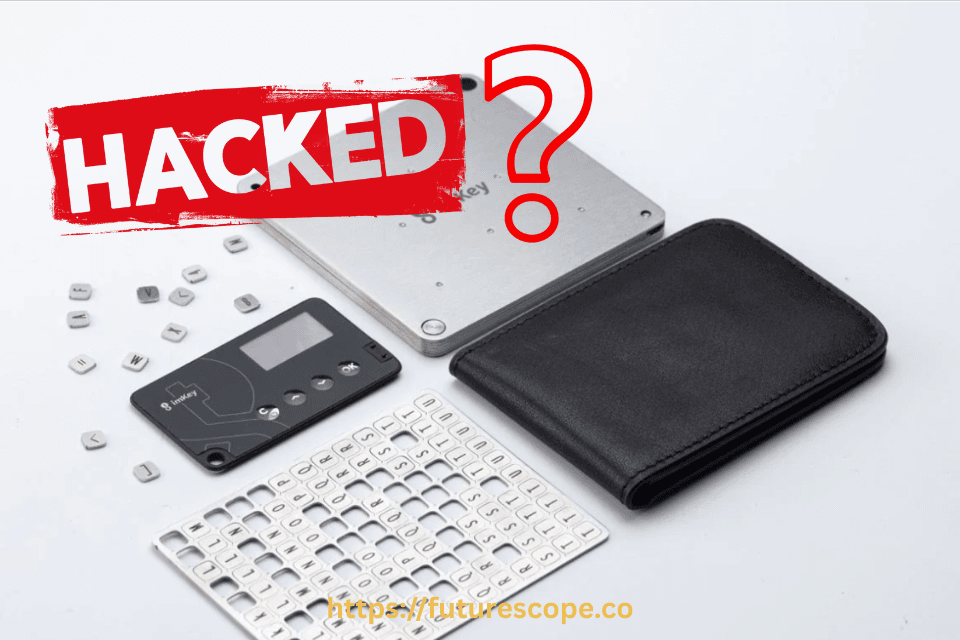In the fast-growing world of cryptocurrency, security is everything. With billions of dollars in digital assets circulating across exchanges and wallets, hackers are constantly looking for ways to exploit weaknesses. This is why many investors turn to hardware wallets—physical devices designed to store private keys offline. They are often marketed as the safest way to protect your crypto. But the big question remains: can hardware wallets be hacked or compromised?
The short answer is that while hardware wallets are far more secure than online or software wallets, they are not completely immune to risks. Let’s break down how they work, the potential vulnerabilities, and the best practices to keep your funds safe.
What Is a Hardware Wallet?
A hardware wallet is a small, physical device—often resembling a USB stick—that stores your cryptocurrency private keys offline. Unlike hot wallets (software wallets connected to the internet), hardware wallets keep your keys isolated from online threats.
Popular examples include Ledger Nano X, Trezor Model T, KeepKey, and BitBox. These devices require you to physically confirm transactions by pressing a button or tapping a screen, ensuring that no transfer can occur without your approval.
The main advantage is that even if your computer or smartphone is infected with malware, your private keys remain secure inside the hardware wallet.
Why Hardware Wallets Are Considered Secure?
Hardware wallets are built with multiple layers of protection:
- Offline Storage: Private keys never leave the device, making them inaccessible to online hackers.
- PIN Protection: Access to the wallet requires a PIN code, preventing unauthorized use.
- Recovery Seed Phrase: A 12–24 word backup phrase allows you to restore your wallet if the device is lost or damaged.
- Physical Confirmation: Every transaction must be manually approved on the device itself.
- Firmware Updates: Manufacturers regularly release updates to patch vulnerabilities.
These features make hardware wallets one of the most secure methods of storing crypto. However, no system is 100% foolproof.
Can Hardware Wallets Be Hacked?
The idea that hardware wallets are “unhackable” is a myth. While they are extremely secure, there are still scenarios where they can be compromised. Let’s explore the main risks:
1. Phishing Attacks
The most common way users lose funds is not through the device itself, but through phishing. Hackers trick users into entering their recovery seed phrase on fake websites or apps. Once the attacker has the seed phrase, they can access the wallet from anywhere.
2. Supply Chain Attacks
If you buy a hardware wallet from an unverified seller, there’s a risk it could be tampered with before it reaches you. A compromised device may contain malicious code or altered firmware designed to steal your keys.
3. Seed Phrase Theft
Even the most secure hardware wallet is useless if someone gains access to your recovery phrase. Writing it down on paper and leaving it in an unsafe place makes it vulnerable to theft, fire, or water damage.
4. Physical Tampering
Although difficult, skilled attackers with physical access to your device could attempt to extract data from the hardware. This usually requires advanced equipment and expertise, but it’s not impossible.
5. Firmware Vulnerabilities
Like any technology, hardware wallets rely on software (firmware). If a vulnerability is discovered and not patched quickly, hackers could exploit it. This is why keeping your device updated is critical.
Real-World Examples of Hardware Wallet Risks
- Ledger Data Breach (2020): While Ledger devices themselves were not hacked, the company’s customer database was compromised, exposing personal information of users. This led to phishing campaigns targeting Ledger owners.
- Trezor Supply Chain Concerns: Security researchers have demonstrated that if a Trezor wallet is intercepted before reaching the customer, it could be modified to leak private keys.
- Fake Wallets on Marketplaces: Counterfeit hardware wallets have been sold online, preloaded with malware designed to steal funds once activated.
These cases highlight that while the devices are secure, the ecosystem around them can still be exploited.
Can Hardware Wallets Be Hacked Remotely?
For most everyday users, the risk of a remote hack is extremely low. Because private keys never leave the device, hackers cannot simply steal them through an internet connection. Hardware wallets are designed to resist malware, phishing, and keylogging attempts.
However, remote compromise is still possible under certain conditions:
- Firmware vulnerabilities – If the device has a software bug, hackers could exploit it through a malicious update. Hardware wallet companies release firmware updates to fix such issues, so updating your device is crucial.
- Supply chain attacks – If a wallet is purchased from an unofficial seller, it could be tampered with before you receive it. Malicious actors can install modified firmware or record the recovery seed.
- Phishing attacks – Hackers sometimes trick users into entering their recovery phrase on fake websites. The problem here is not the device itself but the user being misled.
Can Hardware Wallets Be Physically Hacked?
Physical attacks are one of the main ways hardware wallets can be compromised. If a hacker gains access to your device, they may try methods like:
- Side-channel attacks – Using specialized equipment, attackers can measure power consumption or electromagnetic leaks to extract keys.
- Fault injection – By manipulating the device’s power or clock, attackers may cause it to reveal secrets.
- PIN brute force – Although most devices have protections against repeated wrong attempts, sophisticated attackers may still attempt bypasses.
These attacks usually require advanced technical skills, expensive equipment, and physical possession of the wallet. In reality, the average thief would not have the resources to pull this off.
Human Error: The Biggest Weakness
Even if hardware wallets are secure, the user can still make mistakes that compromise safety. Some common errors include:
- Storing the recovery seed online – Many users write down their recovery phrase but then upload it to cloud storage or email for convenience. This makes it vulnerable to hackers.
- Sharing the seed – Scammers often pose as customer support and ask for the seed phrase. Giving this away instantly gives them access to your funds.
- Buying from untrusted sellers – Fake or tampered hardware wallets can look identical to real ones but are already compromised. Always buy directly from the manufacturer or authorized resellers.
- Not updating firmware – Outdated firmware may contain known vulnerabilities that hackers can exploit.
In most cases of lost funds, it’s not the wallet that failed, but the user who fell victim to a scam or mishandled their recovery phrase.
How to Protect Your Hardware Wallet?
The good news is that most risks can be avoided with proper precautions. Here are the best practices:
- Buy Only from Official Sources
- Always purchase hardware wallets directly from the manufacturer or authorized resellers. Avoid second-hand or third-party marketplaces.
- Secure Your Seed Phrase
- Never store your recovery phrase digitally (photos, cloud storage, or emails). Instead, write it down and keep it in a secure, fireproof, and waterproof location. Some users engrave it on metal plates for durability.
- Enable a Strong PIN
- Use a PIN that is not easy to guess. Many devices wipe themselves after multiple failed attempts, adding an extra layer of security.
- Keep Firmware Updated
- Regularly check for official firmware updates from the manufacturer to patch vulnerabilities.
- Beware of Phishing
- Never enter your seed phrase online. Hardware wallet companies will never ask for it. If you see a website or email requesting your recovery phrase, it’s a scam.
- Consider Multi-Signature Wallets
- For large holdings, using a multi-signature setup (requiring multiple devices to approve a transaction) adds another layer of protection.
Are Hardware Wallets Worth It?
Despite the risks, hardware wallets remain the gold standard for crypto security. Compared to hot wallets, they drastically reduce the chances of being hacked. Most cases of compromised hardware wallets are due to user error—such as falling for phishing scams or mishandling the recovery phrase—rather than flaws in the devices themselves.
For long-term holders and serious investors, the small cost of a hardware wallet is a worthwhile investment for peace of mind.
Final Thoughts
So, can hardware wallets be hacked or compromised? The answer is yes—but only under specific circumstances, and usually due to human error rather than technical failure. Hardware wallets are still the most secure option for storing cryptocurrency, provided you follow best practices.
Think of them as a vault: the vault itself is nearly impossible to break into, but if you leave the keys lying around or buy a fake vault, your assets are at risk. By staying vigilant, buying from trusted sources, and safeguarding your recovery phrase, you can ensure your crypto remains safe from hackers.
In the ever-evolving world of digital assets, security is not just about technology—it’s about awareness, responsibility, and smart practices. Hardware wallets give you the tools, but it’s up to you to use them wisely.
Frequently Asked Questions (FAQ)
Can hardware wallets be hacked?
Yes, but it’s extremely rare. Hardware wallets are designed to be highly secure, but they can be compromised through phishing scams, supply chain tampering, or if someone gains access to your recovery seed phrase.
Are hardware wallets 100% safe?
No, they are not 100% safe, but they are the most secure option available for storing crypto. Most risks come from phishing or user mistakes.
Should I trust buying a hardware wallet from Amazon or eBay?
It’s risky. Always buy directly from the manufacturer or official partners to avoid tampered devices.
What is safer: hardware wallet or keeping crypto on an exchange?
A hardware wallet is much safer. Exchanges are frequent targets for hackers, while hardware wallets give you full control of your funds.
What is the biggest risk to hardware wallet security?
The most common risk is phishing attacks, where users are tricked into entering their recovery phrase on fake websites or apps. Once a hacker has the seed phrase, they can access the wallet remotely.
Are hardware wallets safer than software wallets?
Yes. Hardware wallets store private keys offline, making them far less vulnerable to malware, viruses, and online hacks compared to hot wallets or exchange wallets.
How can I protect my hardware wallet from being compromised?
- Buy only from official sources
- Keep your recovery phrase offline and secure
- Enable a strong PIN
- Regularly update firmware
- Never share your seed phrase online
What happens if my hardware wallet is lost or stolen?
As long as your PIN is secure and you have your recovery seed phrase, you can restore your funds on a new device. Without the seed phrase, no one—including you—can access the wallet.
Can someone hack my hardware wallet without physical access?
Generally, no. Remote hacks are nearly impossible because private keys never leave the device. However, phishing attacks that trick you into revealing your seed phrase are a major threat.
Should I still use a hardware wallet for crypto storage?
Absolutely. Despite potential risks, hardware wallets remain the most secure option for long-term storage of cryptocurrencies, provided you follow best practices for setup and maintenance.








